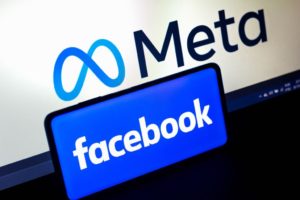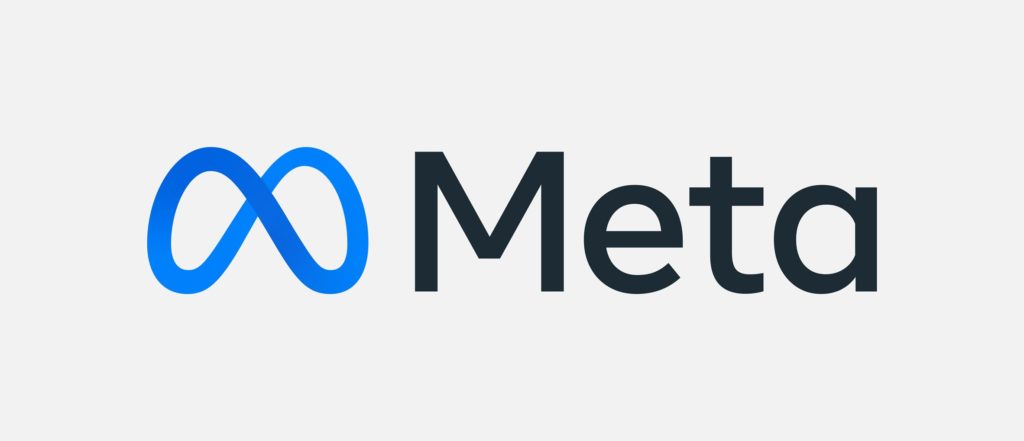On Thursday the 28th of October 2021 popular American multinational technology conglomerate; Facebook changed its name to Meta Platforms, Inc. and will do business as Meta.

The move by Facebook is been seen as the company’s attempt to actively separate itself from being viewed solely as a social media establishment and firmly present itself as the future focused creator of a new digital world known as the Metaverse.
Meta’s Chief Executive Officer (CEO); Mark Zuckerberg via a 1 hour 15 minute online presentation urged all users to modify their perceptions about the company. He stated that Meta formerly known as Facebook, had outgrown its widely accepted and somewhat problematic social media platform which will continue to be called as Facebook.
According to the Chief Executive Officer (CEO); Mark Zuckerberg, Meta is looking to focus on what is being described as the next thing for computing. Said next thing is essentially a virtual universe where users will be able to roam freely as Avatars, going to and for virtual business meetings, socializing at virtual get together, as well as shopping in virtual stores.
Mark Zuckerberg stated at Connect which is the company’s yearly event focused on both virtual and augmented reality that, “From now on, we’re going to be the metaverse first. Not Facebook first.”
The Chief Executive Officer (CEO) added that, “Facebook is one of the most-used products in the world. But increasingly, it doesn’t encompass everything that we do. Right now, our brand is so tightly linked to one product that it can’t possibly represent everything we are doing.”
The decision by the company, is coming at a time when it has been faced with controversy over a number of allegations claiming that it has diligently and privately tracked real life harms aggravated by its platforms, while paying no mind to warnings from its own employees regarding the risks of their design decisions which unfortunately exposed vulnerable users around the world to a number of dangerous content.

Earlier in October a whistleblower reportedly handing in more than tens of thousands of internal company documents to the United States (US) Congress and the United States (US) Securities and Exchange Commission. Lawmakers and critics alike, have called for top priority actions to be carried out in order to keep the technology giant in check.
The information revealed by Frances Haugen; the Whistleblower, are indicative of the challenge at the forefront for the Chief Executive Officer (CEO); Mark Zuckerberg and his company which is currently the largest social media partner in the world.
Read Also: Here Is Why Facebook And Apple Are Sweating It Out Over Your Privacy
Critics have been quick to criticize the decision, going as far as providing comparisons between it and the crisis strategy used by the tobacco company; Phillip Morris after it became evident that said company had been aware for awhile that cigarettes do indeed does harm to one’s health.
Democratic lawyer; Marc Elias made it known via a tweet that, “Don’t forget that when Phillip Morris changed [its] name to Altria it was still selling cigarettes that caused cancer.”
According to Mark Zuckerberg the current rebrand will learn from the “lessons” from the past stating via a blog post, that safety and privacy will be integrated into the new generation of products “from Day One”, a measure which shows that the company is indeed aware of the growing distrust its users have towards it regarding safety and privacy.
The Chief Executive Officer (CEO) in his keynote address acknowledged Facebook’s challenges stating that, “The last few years have been humbling for me and my company in a lot of ways.”
Facebook’s challenges with trust from its users have become even more dire in recent times. This was evident in the uproar brought on by the Facebook Papers given to the United States (US) Congress as well as the United States (US) Securities and Exchange Commission in response to a Whistleblower lawsuit that closely follows other scandals in recent times like the Cambridge Analytica crisis which put a spotlight on the improper sharing of personal data, and the Russian disinformation that surrounded the 2016 presidential election.
Due to the fact that the reveal came from within its ranks and not an outsider, the recent issue is even more impactful for the company. This is because the Facebook Papers not only address every aspect of its services, they also expose crucial flaws in the overall construction of its algorithms, policies, and the design of its platform with the exposed dangers around polarization and mental health serving as eye openers to its users.
The Facebook Papers were accessed by a number of news organizations. Facebook which is now Meta, believes that it was a “coordinated effort to selectively use leaked documents to paint a false picture of our company.”

One major allegation from the Facebook Papers, is that the company created and subsequently launched social media technology without fully understanding the harmful effects of said technology. A number of critics believe that the same problems could be the case for the Metaverse. The difference this time, is that the consequences could be significantly greater especially considering that Mark Zuckerberg believes his users would be living part of their lives in his virtual world; the Metaverse.
To appease any potential criticisms, the Chief Executive Officer (CEO); Mark Zuckerberg made it known via his presentation that the next generation of Internet services would be created with greater “humility and openness” while also taking into account the “lessons” of the last into account. A number of former insiders and critics are however doubting that commitment.
The former Public Policy Director for Facebook, Founder and Chief Executive Officer (CEO) of consultancy Anchor Change; Katie Harbath said, “I was thinking during the keynote, who will be the cops in the metaverse?”
She added that, “The first few years may seem great because not that many people are on the service, but the more that come on, the more bad actors. And then the company plays catch-up.”
Katie Harbath also brought to light the fact that around every five (5) years, the company formerly known as Facebook would announce a major directional change during a bad press period. In 2012 for example, it entered into the mobile space at a time when it was receiving major criticism for the poor performance it experienced during its public offering.
Read Also: How To Use Facebook On Safaricom For Free Or With Little Or No Bundles
In 2017, it announced another shift this time, with a focus on groups and communities aiming to ‘bring the world together’ after serious controversies arose regarding Russian disinformation during the presidential election that occurred in the previous year; 2016.
For the time being at least however, the new name change by Facebook, appears to be aspirational. It has grown from a company created by Mark Zuckerberg 17 years ago in his college dorm room, to a major conglomerate that includes Messenger, WhatsApp, Instagram, along with a promising hardware and payments business. The growth over the years, has made a number of insiders and experts alike, believe that it was indeed about time for the company to go through a name change.
Right now almost all of Facebook’s revenue comes from online advertising executed online the Facebook app (29 billion Dollars in the third quarter of 2021). What this means in a nutshell is that any move to Virtual Reality (VR) with a focus on the selling of hardware, would take a huge amount of investment as well as many years.
eMarketer Analyst; Audrey Schomer made it known that, “While the name change indicates a larger vision, that transformation is not yet a reality and will be a years-long investment.” A sentiment that both Facebook and its Chief Executive Officer (CEO); Mark Zuckerberg agree with.
Mark Zuckerberg during his keynote revealed that the process of becoming a Metaverse company, would take a “decade”. He added that his aim is for it to “reach a billion people” during that period of time.
On Monday the 25th of October 2021 the company made it known that its investments in the Metaverse will remove 10 billion Dollars from its profits for the year 2021. Said investments include a commitment to hiring at least 10,000 new people in hardware jobs.
The keynote by Mark Zuckerberg was packed with a wide array of scenes that revealed the company’s vision for the Metaverse. Said scenes included the company’s Chief Executive Officer (CEO) doing his favorite water sport; Hydrofoiling with his friends in a virtual environment, boxing with virtual Avatars, attending work meetings from a virtual home office, and exercising on a virtual lily pad.
Mark Zuckerberg via a letter which was posted on the company’s website not long after the Keynote made it known that the future would be “an embodied internet where you’re in the experience, not just looking at it. We call this the metaverse, and it will touch every product we build.”

The Facebook Founder first started talking about how the company would evolve to a new identity this year and announced a smart glasses partnership with luxury sunglasses and eyeglasses brand; Ray-Ban along with a plan to use its very own Virtual Reality (VR) Headsets for work related video conferencing.
His longtime friend; Andrew Bosworth who was in charge of the hardware division was subsequently promoted to the position of the company’s Chief Technology Officer.
Observers believe that the political aspect of the rebrand also began months before the Whistleblower; Frances Haugen first came into the spotlight with the Facebook Papers.
According to The Washington Post, the Executives at Facebook spent considerable amount of time, introducing the Metaverse concept to experts in various Think Tanks, while planning outreaches to agencies that might regulate its hardware.
According to reports, Mark Zuckerberg has informed his colleagues the does not wish to be the face of the company’s challenges.
The term “Metaverse” is derived from science fiction. It has since gone on to become popularized by Venture Capitalists in recent times as a way to talk about services that are interconnected.
Facebook is however, not the first Silicon Valley giant to go through a rebrand. In 2015, Google changed the name of its parent company to Alphabet in a bid to unify a corporate giant that encompassed not just its Search and Display advertising but its driverless cars and life sciences division.
Snapchat also changed its name to Snap Inc. its very own way of rebranding itself as a Camera company.
According to Mark Zuckerberg, the name “Meta” was inspired by his love for the literature classics and comes from the Greek word; Beyond.
In his words, “For me, it symbolizes that there is always more to build, and there is always a next chapter to the story.”
How informative was this article? Are there any other news topics, categories, or How To topics, that you would like us to write on? Feel free to reach out to Mpesa Pay in the comment section.


